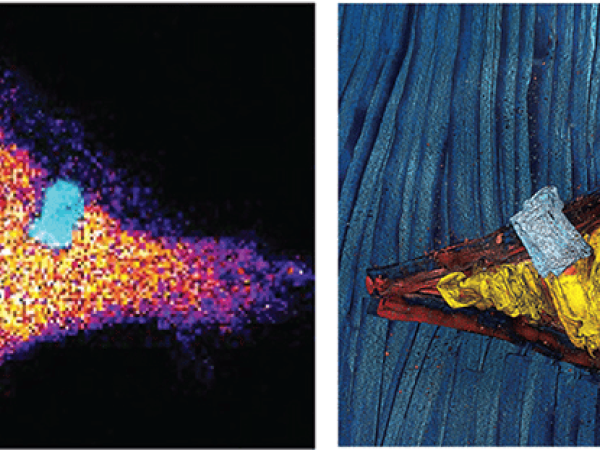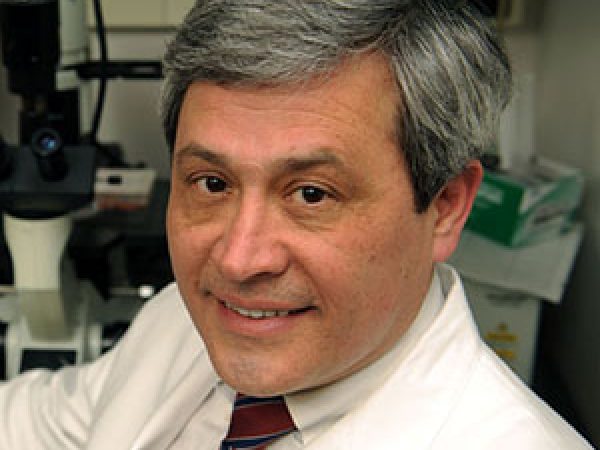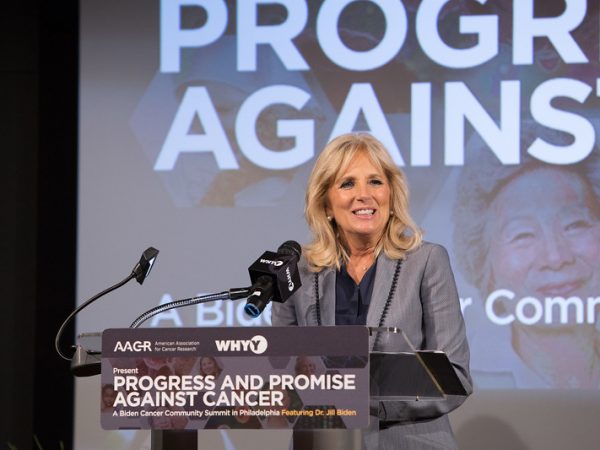Meet John D. Carpten, PhD, Program Chair of the AACR Annual Meeting 2019
The American Association for Cancer Research (AACR) Annual Meeting 2019 will soon be upon us. It begins in the Georgia World Congress Center, Atlanta, at 3 p.m. on Friday, March 29. The Friday start, which is a day earlier than usual, is to ensure that meeting attendees have the maximal ability to participate in the expanded slate of educational sessions and methods workshops included in this year’s program. The content of these and the other AACR Annual Meeting 2019 sessions can be viewed through the Online Itinerary Planner.
The development of the program for the AACR Annual Meeting 2019 was led by John D. Carpten, PhD, Professor and Chair of Translational Genomics, and Director of the Institute of Translational Genomics at the Keck School of Medicine of USC in Los Angeles. AACR President, Elizabeth M. Jaffee, MD, said it has been an honor to work with Carpten to bring together the greatest minds in cancer research for the Annual Meeting. “He has been a brilliant, inspiring, and innovative leader who has devoted an incalculable number of hours to planning a comprehensive, cutting-edge scientific program that captures the exciting research being conducted across the breadth and depth of the field,” she said.
We had the opportunity to speak with Carpten about the planning of the AACR Annual Meeting 2019 and the topics attendees can expect to hear about at the premier cancer research meeting of the year.
What does it mean to be the Program Chair of the AACR Annual Meeting? And what role does the Program Chair play in developing the scientific program for the meeting?
It is a tremendous honor and privilege to serve as Program Chair of the AACR Annual Meeting 2019. The AACR Annual Meeting is hands down the world’s most premier cancer research conference. Working alongside Dr. Liz Jaffee, the AACR President, Dr. Marge Foti, the AACR CEO, and a diverse and deeply knowledgeable group of Program Committee cochairs and vice chairs to manage the creation of what we hope is a unique and inspiring program has been an absolute pleasure.
In my role as Program Chair, I have led numerous face-to-face meetings, and telephone and email discussions, and I am very excited about the final program that we have developed. It spans the spectrum of the field. In addition to many sessions on innovative basic, translational, and clinical cancer research, there are sessions that will highlight issues of importance to cancer advocates, patients, and survivors, such as addressing the physical, financial, and psychosocial challenges faced by patients during and after treatment. The program also includes some provocative sessions, such as the Presidential Select Symposium: Engaging Cancer Patients as Partners in the Research Process, and two sessions—“Making Science Count for Patients: CTLA4” and “Making Science Count for Patients: CDK4/6”—showcasing the basic, translational, and clinical research steps that led to the first high-impact immunotherapy [ipilimumab (Yervoy)] and to an important class of precision medicines used in the treatment of breast cancer (CDK4/6 inhibitors).
Liz, Marge, and I have also doubled down on ensuring that it is not only the program that is diverse, but that there is a diversity of speakers. The AACR Annual Meeting always includes a diverse array of speakers, but this year, we made gender, minority, and geographic equity an even more central part of our program development. We are also proud that we have selected a record-high number of early-career investigators as AACR NextGen Stars, which provides them an exciting opportunity to present their research during a major session at the meeting.
The theme for the meeting is “Integrative Cancer Science • Global Impact • Individualized Patient Care.” Why was this theme chosen?
We wanted the theme of the Annual Meeting to emphasize three unique areas of cancer research that highlight the critical role that the AACR Annual Meeting plays in driving innovation in the world cancer research community.
Integrative cancer science underscores that convergence of cancer biology and clinical oncology with fields such as mathematics, physics, chemistry, engineering, and computer science has incredible potential to transform cancer research, diagnosis, and treatment. We have several educational sessions, major symposia, and meet-the-expert sessions showcasing this emerging aspect of cancer research, including how big data, artificial intelligence, and machine learning are being harnessed to accelerate the pace of progress.
Cancer is a public health challenge not only in the United States, but around the world. Globally, the number of new cases diagnosed each year has been rising for many years. If current trends continue, it is predicted to reach 24 million in 2035. With members in 120 countries, the AACR is uniquely positioned to bring together researchers from around the world to combat the growing global burden of cancer. In fact, last year’s AACR Annual Meeting attracted attendees from 109 countries. To shine a spotlight on the importance of understanding cancer globally and to highlight the major global impact of the AACR, we have included global impact as a theme for the AACR Annual Meeting 2019 and put together a plenary session titled “Clinical and Translational Research in Diverse Populations,” with speakers from around the world.
We included individualized patient care as a theme for the AACR Annual Meeting 2019 because improving the lives of cancer patients is at the heart of the AACR’s mission. We will only achieve this goal if we deepen our understanding of the biology of cancer through basic research, and use increasingly sophisticated technology to apply our knowledge. The Annual Meeting has sessions that will cover these aspects, and it is exciting to see how past scientific discoveries are allowing us to tailor patient care today.
Cancer health disparities research is an area of focus for the AACR. What can this year’s Annual Meeting attendees expect to learn about this topic?
As you say, the AACR has a longstanding commitment to addressing cancer health disparities, often in association with the AACR Minorities in Cancer Research Council (MICR). For example, the AACR and MICR have been hosting the foremost scientific conference dedicated exclusively to the topic for more than a decade. In addition, the AACR Annual Meeting has always included sessions on cancer health disparities and provided great networking opportunities for those working in the field. These sessions will continue as usual this year, but given that the city of Atlanta has a rich history in civil rights and in cancer health disparities research, we wanted to dramatically raise the visibility of this topic among all participants at the meeting. One way that we are doing this is by focusing the plenary session on Monday on the important topic of understanding diversity across populations. The more we understand about the role of biology and genetic ancestry in diverse populations, the better we can understand the science of cancer health disparities.




